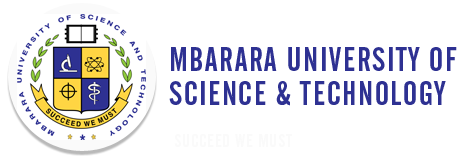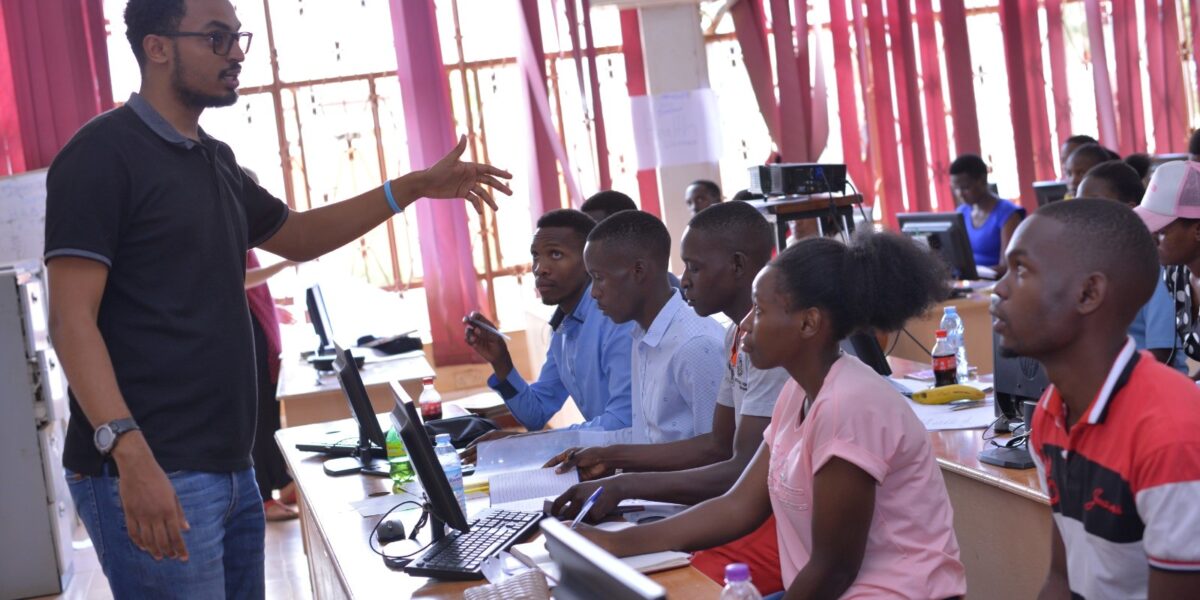Project 5 under the theme: increasing youth employability through skilling innovation, experiential learning, and technology transfer held a 5-day boot camp at MUST.
In order to address the issue of youth employability in southwest Uganda, the project initiatives are using mindset change and experiential learning training approaches.
Dr. Manasseh Tumuhimbise, the project’s team head, estimates that youth make up more than 70% of the population. “The majority of these are unemployed,” he said, “but Project 5 seeks to address the issue, and ultimately, we all benefit,” Manasseh argued that this is accomplished by initially strengthening MUST’s entrepreneurial and innovation capacities in response to the youth employability community dilemma, by:
Strengthening the availability of business incubation services by equipping and operationalizing the Business Incubation Clinic (BIC) and the Centre for Innovation and Technology Transfer.
Increasing MUST faculty entrepreneurial capacity through mindset change to accept partnerships and innovations.
Development of experiential learning methodologies, entrepreneurial short courses, and entrepreneurship and skill training materials.
All of this was undertaken in the first year of the project and will continue throughout the project’s five-year phase 1, according to Dr. Manasseh, the team leader. He added that the project is closely collaborating with StartHub Africa, a private sector-led effort, to support the creation of instructional materials, provide staff mentoring, and implement an entrepreneurship bootcamp for students at MUST.
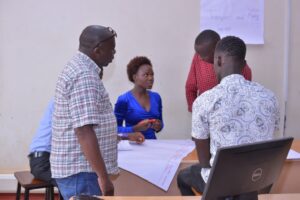
Achievements of year one of the project
- The level 1 youth entrepreneurship development training approach and materials produced.
- Promotion of entrepreneurial and innovation training and mentorship initiatives were 21 MUST faculty and alumni were inducted.
- Established the entrepreneurship development (level 1) Youth-focused short course.
- The first boot camp for fostering the growth of young entrepreneurs has been implemented. There were 39 attendees from the six university faculties.
Training content during the bootcamp
- These have been introduced to design thinking mode. To identify a business challenge and opportunity
- They have also learnt the lean-business canvas model. This teaches them on how to develop a business idea to the identified challenges.
- Basic Marketing and Financial literacy skills.
- The students have gotten an opportunity to interact with successful business entreprenuers in Mbarara city. These shared their past present and future.
- Experiential learning: The students were divided groups, each group was given 50,000/= fifty thousand shillings and challenged to set up a business and bring back profits in 5 hours. According to the team lead, all the groups brought back profits.
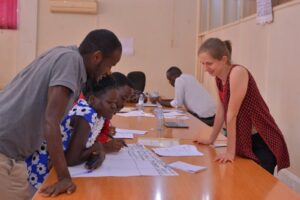
The final day of the training
Eight groups were formed. These were challenged to identify a business idea. This was pitched to move forward as output of the boot camp.
This was before a panel of judges that included:
- Mr. Erastus Aheisibwe-MUST
- Ms. Nuriat Nambogo-Grants Manager CAMTech (U)
- Ms. Justice Jussy Atwijukire-MUST Alumni/entreprenuer
- Mr. Francis Kamuganga-MUST FCI
- Dr. Prudence Kemigisha-MUST
- Mr. Silver Tumwesigye-MUST Alumni/entrepreneur
Each team had five minutes to pitch their idea to a panel of judges during the presentations.
The various teams’ presentations are listed below;
- Team Instant Bio-Med: These highlighted the issue of inadequate medical device repair and maintenance in healthcare facilities and proposed a solution by creating a platform to link the required bio-medical engineers with the required healthcare facilities.
- Quick Hostel Finders: This group sought to make it easier for new students to obtain housing by offering reasonably priced brokerage services.
- Golden Matooke Flour: Making matooke flour helps to address the issue of the limited shelf life of matooke and the rise in price during times of scarcity.
- BUBU: These developed shoe polish using banana peelings to address the issue of the students’ and pupils’ unaffordable budget for polish.
- Dung Energy: These are developing dung charcoal that is affordable, clean, and cheaper to solve the issue of using charcoal.
- PAKK GRAINS AND QUALITY CHICKEN: They are solving the problem of poor-quality products like beans in schools and restaurants.
- BIG CHICKEN FEEDS: These are addressing the issue of pricey, low-quality feeds in the Mbarara area by providing renowned and reasonable prices.
- CAMPUS CONNECT The availability of expensive and unreliable transportation options as well as a lack of coordination between the lecturers and students. This team is resolving the issue by collaborating with a transit provider and charging a reasonable fee.
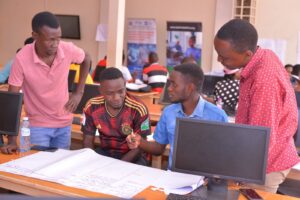
Dr. Manasseh is grateful to the efforts of Project 5 entire team members and StartHub Africa; that tirelessly worked together to enable the successful implementation of the boot camp. He added that entrepreneurship boot camps shall be implemented at campus and in the community every year in partnership with start hub Africa. Congratulations to the winning teams and good luck to you all.
